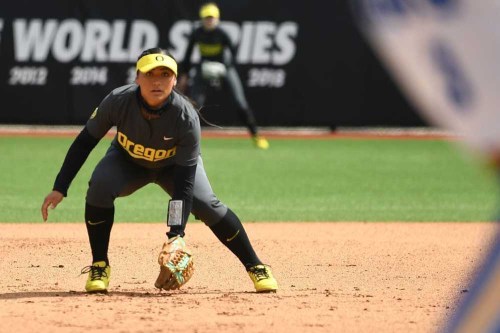Oregon bill allowing college athletes to be compensated for use of names and images moves to Senate floor
Published 12:36 pm Wednesday, May 26, 2021

- Two amendments to proposed state legislation to permit college athletes in Oregon to be compensated for their name, image and likeness were adopted in committee and the bill has been sent to the Senate floor with a recommendation to pass it.
SALEM — Two amendments to proposed state legislation to permit college athletes in Oregon to be compensated for their name, image and likeness were adopted in committee and the bill has been sent to the Senate floor with a recommendation to pass it.
Senate Bill 5, which permits college athletes in Oregon to earn compensation for use of their name, image or likeness and to retain representation related to those opportunities, was heard in a work session of the senate rules committee on Tuesday, May 25.
Trending
If passed, the bill will go into effect immediately, with Oregon college athletes able to earn NIL compensation beginning on July 1, the same day similar laws are set to go into effect in five other states — Alabama, Florida, Georgia, Mississippi and New Mexico — with 11 others also having passed similar laws.
Sen. Peter Courtney, D-Salem, a co-sponsor of the bill along with Sen. James Manning Jr., D-Eugene, explained to the committee that Amendment 7, which removes the unique and controversial royalty payments from “merchandising” deals, was done last week after NCAA president Mark Emmert told state lawmakers the payments that provision called for would make athletes employees and thus ineligible to compete.
“This is the painful one for me and I say you should support it, it’s got to be done,” Courtney said. “This is a heartbreak for me. … I have to concede at this time because I’m not going to play God with the eligibility lives of our athletes.”
Sen. Fred Girod, R-Slayton, questioned the removal of the royalty payments measure and voted against adopting the related amendment but noted he may vote for the bill on the Senate floor.
“I support your cause because I do want to help the average player,” Girod told Courtney, “but the superstars making $1 million doesn’t help me any.”
Both the University of Oregon and Oregon State University issued statements last week supporting the amended SB 5.
Trending
UO’s associate vice president for state and community affairs, Hans Bernard, noted that in terms of social media followings, eight of the top 10 athletes at UO are women in non-revenue sports.
“I think we are excited to see all of our student-athletes enterprise their social media followings,” Bernard said. “We do believe that this policy will have a positive impact for many student-athletes, not just the all-stars that folks are most familiar with their names.”
The estimated fiscal impact of SB 5, as determined by the Higher Education Coordinating Commission, estimates approximately $2.5 million in “staff and consulting costs” per biennium related to legal counsel and compliance officers. The universities also expect incalculable revenue losses from what they believe will result in lower contracts with vendors, some of whom may not engage in NIL payments directly to athletes.
Federal lawmakers continue to craft a national NIL bill with the goal of passing it before July 1.
The NCAA Division I Council is expected to address NIL proposals, which had been tabled in January, during its June 22-23 meeting.









